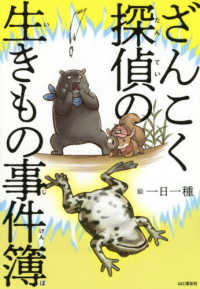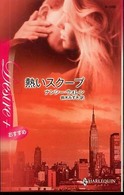- ホーム
- > 洋書
- > 英文書
- > Cinema / Film
Full Description
This book offers a unique perspective on contemporary Polish cinema's engagement with histories of Polish violence against their Jewish neighbours during the Holocaust. Moving beyond conventional studies of historical representation on screen, the book considers how cinema reframes the unwanted knowledge of violence in its aftermaths. The book draws on Derridean hauntology, Didi-Huberman's confrontations with art images, Levinasian ethics and anamorphosis to examine cinematic reconfigurations of histories and memories that are vulnerable to evasion and formlessness. Innovative analyses of Birthplace (Łoziński, 1992), It Looks Pretty From a Distance (Sasnal, 2011), Aftermath (Pasikowski, 2012), and Ida (Pawlikowski, 2013) explore how their rural filmic landscapes are predicated on the radical exclusion of Jewish neighbours, prompting archaeological processes of exhumation. Arguing that the distressing materiality of decomposition disturbs cinematic composition, the book examines how Poland's aftermath cinema attempts to recompose itself through form and narrative as it faces Polish complicity in Jewish death.
Contents
1. Aftermath cinema: unwanted knowledge, unwanted images.- 2. Earth and bone: framing posthumous materialities.- 3. Posthumous landscapes and the earth-archive: archaeology, ethics and Birthplace.- 4. Aftermath's cinematic séance: anamorphosis, spectrality, and sentient matter.- 5. The fabric with its rend: framing grief, materialising loss, and Ida's temporalities.- 6. A film found on a scrapheap: abjection, informe, and It Looks Pretty From A Distance








